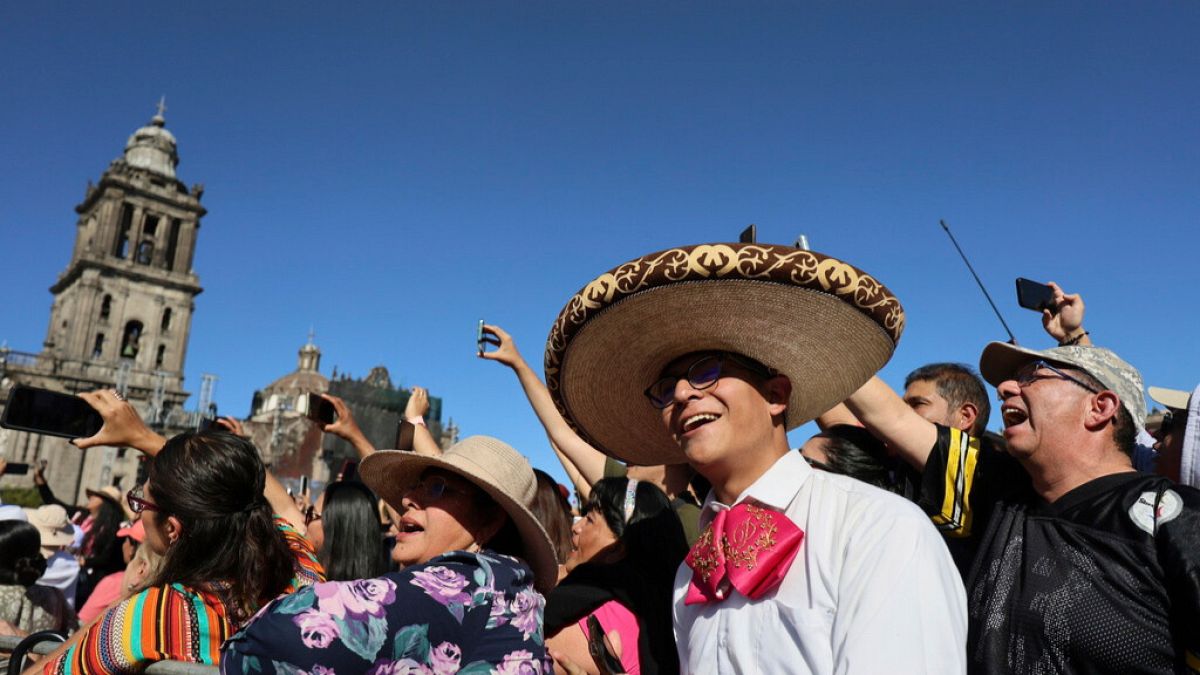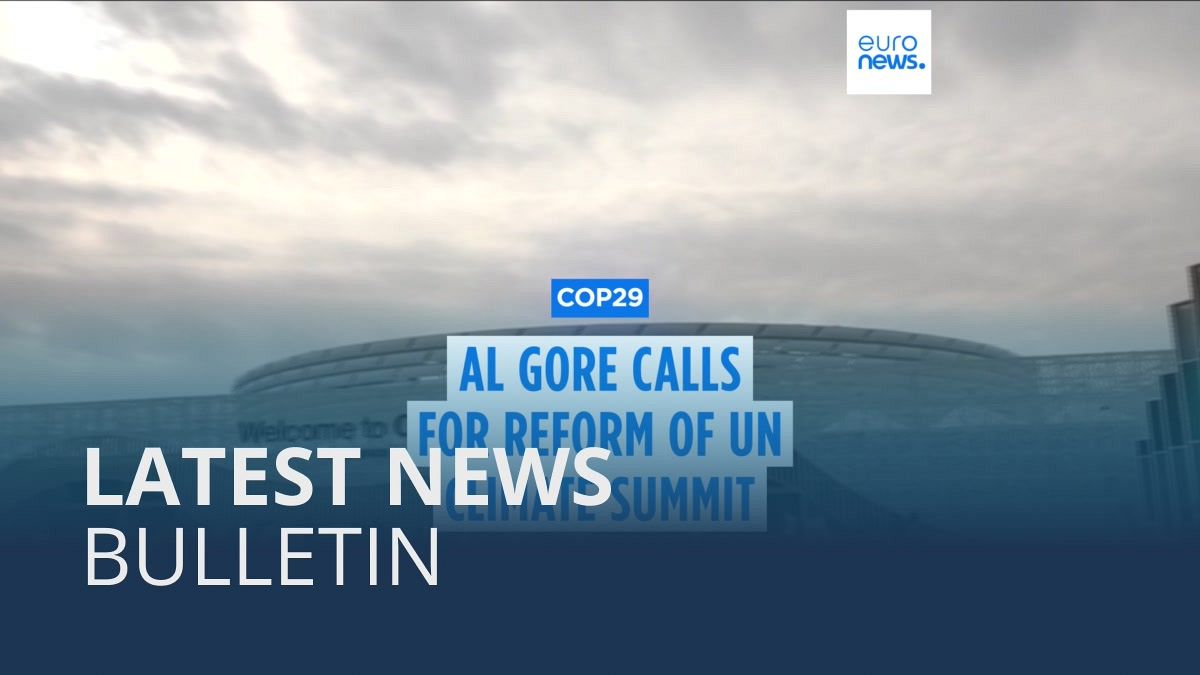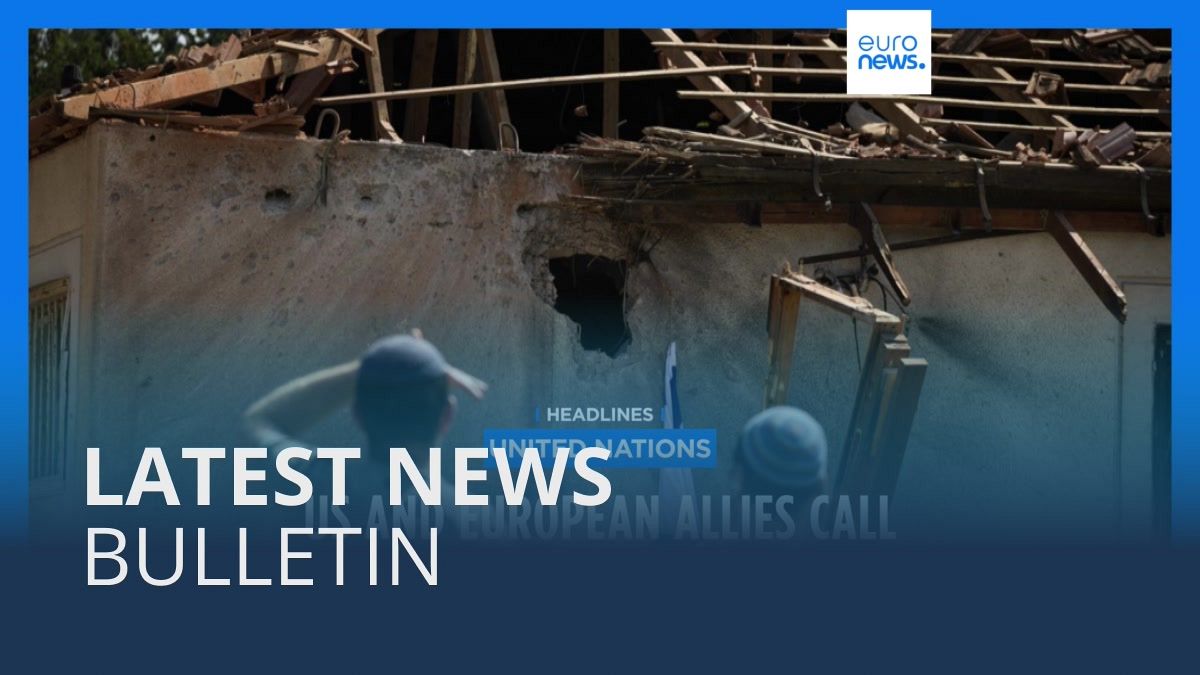Zelenskyy’s 5 asks on his Europe tour (and the odds he’ll get them)
The Ukrainian president is racing across Europe to lock in support for Kyiv. We rate his chances of success.
BERLIN — Ukraine’s President Volodymyr Zelenskyy isn’t letting a hurricane stop him from presenting his victory plan to leaders in London, Paris, Rome and Berlin.
Starting Thursday, Zelenskyy is on a 36-hour tour of major European capitals, aiming to persuade the leaders of the United Kingdom, France, Italy and Germany, along with NATO’s new secretary-general, to offer up further military aid.
With Ukrainian troops under pressure from Russians who are inching forward despite astronomical casualties, Zelenskyy wants to lock in support for his country ahead of next month’s U.S. presidential election which could upend Kyiv’s relationship with its key ally.
The whistle-stop tour is a last-minute substitute forced by Hurricane Milton, which prompted U.S. President Joe Biden to cancel this week’s trip to Germany. He was supposed to chair a summit of the Ukraine Defense Contact Group at Ramstein Air Base on Saturday targeted at coordinating military aid for Kyiv — which would have been an opportunity for Zelenskyy to address his key allies all together.
Now he’s having to pick them off one by one.
The Ukrainian president started in London, where he presented his plan to Prime Minister Keir Starmer and NATO chief Mark Rutte.
He said it “aims to create the right conditions for a just end to the war … Ukraine can negotiate only from a strong position.”
He also — again — asked for permission for Kyiv to use donated weapons to hit targets inside Russia, something the U.S. has been blocking.
“Legally that is possible because legally Ukraine is allowed to use its weapons, if they can hit targets in Russia, if these targets present a threat to Ukraine,” Rutte said, adding: “But whether individual allies do, that’s in the end always up to individual allies.”
Zelenskyy will take the same pleas to President Emmanuel Macron in Paris on Thursday afternoon before ending the day in Rome with Prime Minister Giorgia Meloni, who is a strong supporter of Kyiv but is adamant that Italian weapons cannot be used inside Russia.
After breakfast with the Pope on Friday, Zelenskyy heads to Berlin where he’ll meet Chancellor Olaf Scholz — Ukraine’s biggest military supporter after the U.S., but also one who is refusing to donate long-range Taurus cruise missiles for fear of provoking Russia.
With the trip just hours old, Ukrainian officials scrambled to shoot down rumors that Zelenskyy was peddling a ceasefire.
“We have a peace formula, we have a victory plan that is aimed to push the implementation of the peace formula,” the deputy head of Zelenskyy’s office, Dmytro Lytvyn, told POLITICO. “That is what we’re talking about here. Nobody is talking about anything else.”
POLITICO took at look at Zelenskyy’s top five asks for his European tour and assessed his chances on a 1-5 scale, with 1 meaning almost no chance and 5 very likely.
1. Road to NATO
Some form of commitment on a path to NATO membership is a big part of Kyiv’s end-of-war play, as it’s seen as the only way of preventing another Russian attack.
Andriy Yermak, the head of Zelenskyy’s office, recently said an invitation for Ukraine to join the defense alliance is a part of the victory plan and he has encouraged allies to ignore Russia’s threats of escalation.
But getting a clear invitation anytime soon is going to be a big ask.
While NATO has said Ukraine is on track to join one day, there is no timeline — with the U.S. and Germany leading the pack of skeptics worried about admitting Kyiv.
Instead, Kyiv has set about signing 20 bilateral security deals with various allies aimed at forging closer security links, but they don’t provide anything like the security guarantees given by NATO membership.
Odds of success: 1
2. Protect Ukraine’s skies
A practical move would be to get Western allies close to the front lines — essentially Poland and Romania — to use their air defense equipment to shoot down Russian drones and missiles flying over western Ukraine.
For now that’s a complete non-starter, as allies are worried about getting into a direct conflict with Russia.
That has prompted some bemusement in Kyiv, with diplomats pointing to the U.S. using its air defenses in conjunction with Israel to knock down incoming Iranian missiles. Kyiv is calling for the “same determination” in protecting Ukraine “from Russian missile and drone attacks.”
Odds of success: 1
A related question is persuading capitals to send more air defense systems that Ukraine’s military can deploy itself, with pledges of fresh Patriot platforms and Franco-Italian SAMP/T units the key target.
Despite promising statements during the summer, deliveries have dried up, but pledges are continuing.
Odds of success: 4
3. Right to strike deep in Russia
As he made clear in his meeting with Starmer and Rutte, Zelenskyy is pushing hard for a rethink on restrictions preventing Ukraine from hitting targets inside Russia with donated weapons.
Despite support from Rutte, capitals fear allowing deep strikes could spark a wider war or even a Russian nuclear response.
Odds of success: 1
4. Reopening the Taurus question
The U.S., the U.K., France and Italy have shipped limited supplies of long-distance missiles to Ukraine — although they don’t want them used inside Russia.
Germany has steadfastly refused to allow the dispatch of its powerful Taurus cruise missiles.
Despite pressure from his coalition partners to change position, Scholz’s response has been a consistent and categorical “nein.”
While Berlin has around €1.4 billion in what it claims is new funding available for a package of arms support, there’s little chance Zelenskyy is going to move the dial on the Taurus missiles in Berlin on Friday.
Odds of success: 1
5. Make Ukraine the arsenal of democracy
The Ukrainian government also wants to drive investment into its own arms industry, which would boost its economy and provide it with weapons it can use against Russia without having to badger squeamish allies.
Defense companies like Rheinmetall, Nammo and Saab have already agreed on some form of local production programs for artillery and armored vehicles. Denmark, Canada and Lithuania are also placing direct orders with Ukrainian companies.
Zelenskyy said on Monday that the plan was to push the issue during Saturday’s Ramstein meeting.
Odds of success: 5
What's Your Reaction?




















































